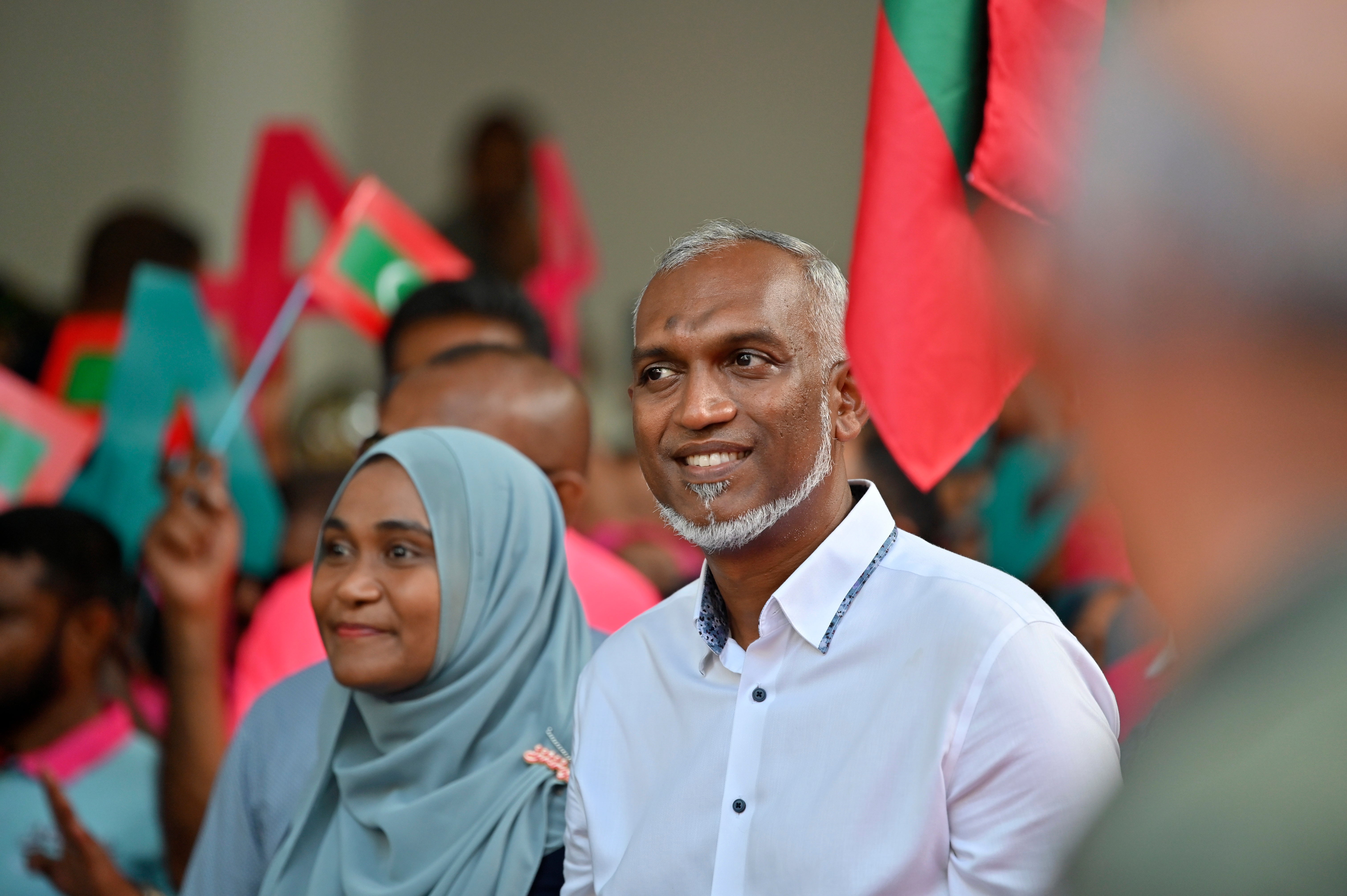Maldives elects pro-China leader as president in shift away from regional ally India
Mohamed Muiz’s People’s National Congress party is viewed as heavily pro-China

Your support helps us to tell the story
From reproductive rights to climate change to Big Tech, The Independent is on the ground when the story is developing. Whether it's investigating the financials of Elon Musk's pro-Trump PAC or producing our latest documentary, 'The A Word', which shines a light on the American women fighting for reproductive rights, we know how important it is to parse out the facts from the messaging.
At such a critical moment in US history, we need reporters on the ground. Your donation allows us to keep sending journalists to speak to both sides of the story.
The Independent is trusted by Americans across the entire political spectrum. And unlike many other quality news outlets, we choose not to lock Americans out of our reporting and analysis with paywalls. We believe quality journalism should be available to everyone, paid for by those who can afford it.
Your support makes all the difference.Maldives has elected a pro-China opposition candidate as its president in run-off elections that could lead to the country moving away from traditional ally India.
The polls became a virtual referendum on which regional power – India or China – will have the biggest influence in the small archipelago known for its pristine beaches and for being a tourist hotspot.
Mohamed Muiz, the leader of the opposition People’s National Congress (PNC) party, ran on an “India Out” campaign plank and will now become the next president of the Maldives.
Incumbent president Ibrahim Mohamed Solih lost the runoff that was triggered after neither candidate fetched 50 per cent of the vote.
Mr Muiz clinched more than 53 per cent of the vote this time and had a lead of more than 18,000 votes, compared to Mr Solih, a close India ally who trailed behind with 46 per cent of the vote, reported leading local news portal Mihaaru News.
The incoming president has pledged to eject Indian troops from the Maldives and balance the country’s trade relations, which he said heavily supported India. He is expected to assume office on 17 November.
“With today’s result we have got the opportunity to build the country’s future. The strength to ensure the freedom of Maldives,” Mr Muiz said in a statement after his victory.
“It’s time we put our differences aside and come together. We need to be a peaceful society,” he said.
The president-elect has also asked Mr Solih to transfer former president Abdulla Yameen to house arrest from prison.
Mr Muiz’s PNC is viewed as heavily pro-China.
Largely seen as an underdog, Mr Muiz was named only as a fallback candidate closer to the nomination deadline after the Supreme Court prevented former president Yameen, who is serving a prison sentence for money laundering and corruption.
His supporters said he was jailed for political reasons.
Mohamed Shareef, a top official from Mr Muiz’s party, said the poll results are a reflection of the patriotism of the people.
“A call on all our neighbours and bilateral partners to fully respect our independence and sovereignty,” he said, and added that it was also a mandate for Mr Muiz to resurrect the economy and for Yameen’s release.
The outgoing leader Mr Solih was elected as president in 2018 and had battled allegations by Mr Muiz that he had allowed India to become an unchecked presence in the country.
Mr Solih insisted that the Indian military’s presence in the Maldives was only to build a dockyard under an agreement between the two governments and that his country’s sovereignty won’t be violated.
Ahmed Shaheed, a former foreign minister of Maldives, termed the election verdict as a public revolt against the government’s failure to meet economic and governance expectations rather than concerns over Indian influence.
“I don’t think India was at all in the people’s minds,” he said.
But despite the rhetoric, Mr Muiz is unlikely to change Maldives’ foreign policy of affording an important place to India, he said, adding that the leader is more likely to lessen opposition to Chinese projects on the islands.




Join our commenting forum
Join thought-provoking conversations, follow other Independent readers and see their replies
Comments